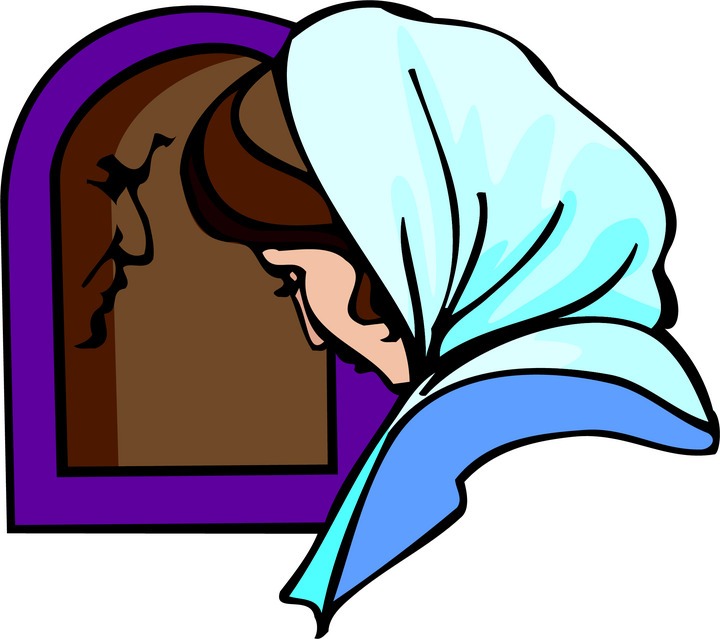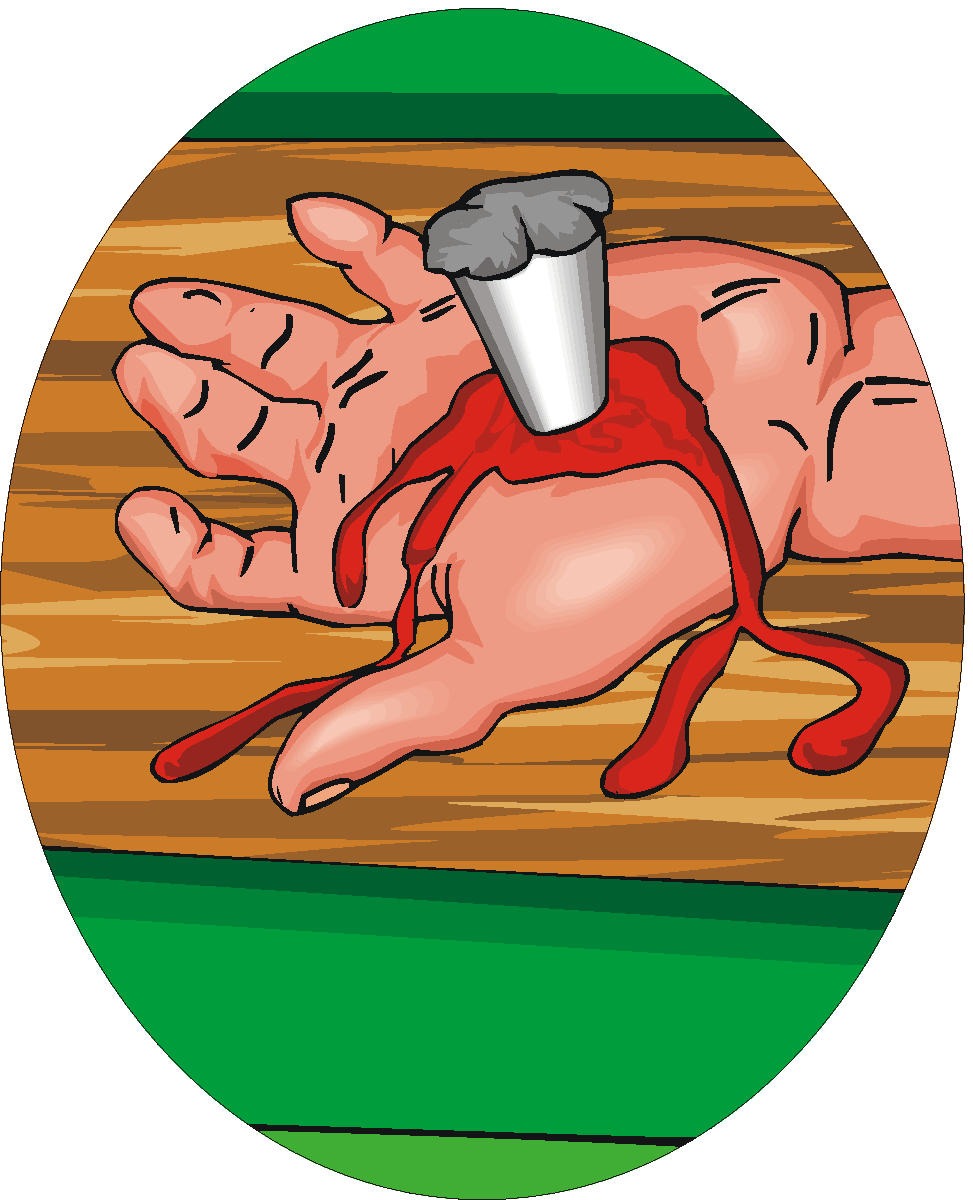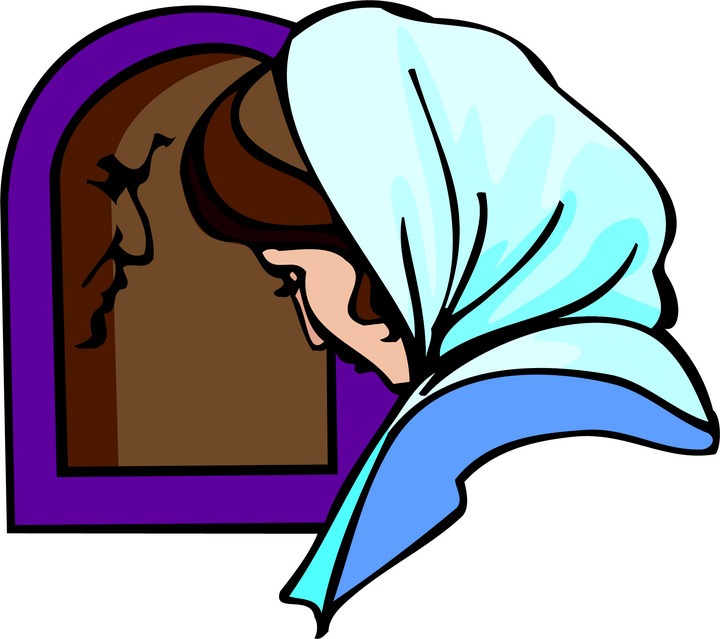Tag Archives: Sin
Only One Cure for Guilt and Shame!
Genesis 3:7, Naked…fig leaves. Guilt and shame. Guilt and shame are different. Guilt is a result of sin and brings conviction of sin leading to confession, forgiveness and cleansing from sin.
Shame, on the other hand, drives us to hide and tells us that we can’t truly be forgiven—that we need to hide. We have to hide behind something. Usually it’s a religious mask to make people think we’re different than we really are—to hide our true identity, who we really are. Adam and Eve used fig leaves. There was no church to hide in where they could play childish religious games of pretend.
Religious people are especially adept at play-acting with masks. This is often fueled by a sincere but misguided desire to please Elohim and others. In reality, we’re hiding our guilt, shame, scars, imperfections, hurts and sins without dealing with them.
The reality is that the shame and condemnation of sin doesn’t lift until one confesses sin and trusts Elohim to forgive them and then let him provide them with his own sin-covering. Elohim covered Adam and Eve in skins—probably a sheep skin, which was a picture of Yeshua—YHVH’s Lamb—dying for them at the cross.
Likewise, our sin must be covered in the atoning blood of Yeshua. Wearing masks instead of dealing with sin causes us to become smug, self-sufficient, dishonest, self-righteous and arrogant. This was the spiritual state of the Laodiceans.
The blood of animals vs. the blood of Yeshua
Hebrews 9:13–14, Purifying the flesh…cleansing your conscience. The Levitical sacrificial system was never able to atone for sin in the full sense. These sacrifices were effective only temporarily in that they had to be continually repeated.
In reality, these sacrifices never mitigated YHVH’s judgment against sin. The Levitical sacrifices simply covered over sin, so that the sinner could stand before Elohim without being consumed by his righteous judgments. But only Yeshua’s death could satisfy Elohim’s judgment against sin permanently in the life of the believer. Only his atoning sacrifice can thoroughly wash away our sins, remove the death penalty, which is the wages or penalty of sin, and cleanse the sinner of the guilty conscience which resides in his personal spirit, so that one could “serve the living Elohim” with a clean slate.
Sin can contaminate the spirit of man, which houses the conscience of man (2 Cor 7:1; see notes at Col 3:10). Only the blood of Yeshua can miraculously cleanse our soul (the mind, will and emotions) and spirit of a person and bring us to perfect holiness in the fear of Elohim (ibid.) This Yeshua did in a spiritual sense in the spiritual temple in heaven, which is greater than the physical temple on earth, which was a mere copy or shadow of the one in heaven (Heb 8:3–6).
The cleansing that the Levitical sacrificial system offered was physical and external, while the one Yeshua offers through the heavenly temple gives internal cleansing.
Concourse With the World—A Slippery Slope
Numbers 33:55, If you do not drive out. In his instructions to his children, YHVH is serious: he doesn’t want his saints to countenance the ungodly heathens that were around them in any way.
One has only to read in the pages of the Scriptures the long and sad history of Israel’s numerous involvements with the societies around them resulting in their fall into apostasy again and again.
The reason for this tendency toward spiritual declension is simple. The answer is found in 1 Corinthians 15:33. What does YHVH require his people to do in the face of evil? (See Ps 94:16.)
The problem is that when an unsuspecting saint begins to toy with sin and sinners, slowly and imperceptibly the slide down the proverbial spiritual slippery slope begins. This is what happened to Lot when he left Abraham and moved toward Sodom (review Gen 13:10–12 cp. 19:1–26). Next, we see that Lot is married with children, has a home in Sodom and is a leader there. Even though the Scriptures consider Lot to be a righteous man, it was nevertheless difficult for him to leave that wicked city. Though Lot’s wife left Sodom physically, she couldn’t leave it emotionally. (Remember Yeshua’s warning to us in Luke 17:32 as pertaining to the last days. Let us also not forget Yeshua’s warning to the church of Laodicea in (see Rev 3:14–22).
Vengeance, Retribution, Vindictiveness and Retaliation Is Torahlessness ≠ Love
Thou shalt not hate thy brother in thine heart: thou shalt in any wise rebuke thy neighbour, and not suffer sin upon him. Thou shalt not avenge, nor bear any grudge against the children of thy people, but thou shalt love thy neighbour as thyself: I am the LORD. (Lev 19:17–18, KJV)
Leviticus 19:17, Not hate your brother. On vengeance, retribution, vindictiveness and bearing grudges against others. The KJV and NKJV translations of this verse is difficult to understand. The NIV reads, “Do not hate your brother in your heart. Rebuke your neighbor frankly so you will not share in his guilt.” The NAS has, “You shall not hate your fellow-countryman in your heart; you may surely reprove your neighbor, but shall not incur sin because of him.” Finally, the ASET reads, “You shall not your brother in your heart; you shall reprove your fellow and do not bear a sin because of him.”
In other words, when your brother treats you improperly, honestly confront him, or as Yeshua said, “If your brother sins against you, go and tell him his fault between you and him alone” (Matt 18:15). However, if he ignores you and is still prone to vengeance or bearing a grudge against you, don’t become like him and retaliate against him (Lev 19:18). Instead, love him as yourself, or treat him with love as you wish to be treated (ibid.), or else you will incur his sin by becoming like him (v. 17). Yeshua summed up this godly principle of not giving in to vengeance and retaliation when wronged this way, “But I say unto you, That ye resist not evil: but whosoever shall smite thee on thy right cheek, turn to him the other also” (Matt 5:39). This is loving one’s neighbor as oneself and is the summation of the second half of the Torah (Mark 12:29–31) as summed up by the last five of the ten commandments (Exod 20:12–17).
Exhibiting vengeance, retribution, vindictiveness or bearing a grudge against one’s neighbor is a lack of self control, is a result of anger and is a form of hatred, which are all works of the flesh resulting in contentions between people (Gal 5:20). These are sinful behaviors and are the opposite of the fruit of the Spirit (Gal 5:22–24), and people who habitually practice these sins along with the other works of the flesh are in danger of not being in the kingdom of Elohim (Gal 5:21).
Numbers 16—The Dynamics of Pride and Rebellion and Elohim’s Response
Numbers 16:1–3, Took men…rose up…gathered together against. Notice a progression (or downward spiral) of actions on the part of Korah and his rebels. They separated themselves from fellowship, rose up against Moses, gathered together others of like mind and falsely accused leadership of wrong doings. This is the world’s formula for achieving political (humanistic) power and domination. It is the opposite method of advancing in YHVH’s kingdom where the way down is the way up; that is, when one lays one’s life down in service, spiritual reward, advancement and blessing will occur for that person (Matt 20:27; 23:10).
Rebels, like Korah, tend to separate themselves from fellowship, seek out other like-minded rebels, and then rise up in defiance and accusation against godly leadership. Again, this leads to political power. The way of spiritual power is laid out in Acts 2:42–47 where the followers of Yeshua continued steadfastly in the apostles’ doctrine, in fellowship, breaking bread together, in prayer and sharing their goods with one another. The result was real spiritual power authority and anointing from heaven, and not power based on usurpation, human pride, degradation of others and self-promotion. This can only happen as people forsake not the assembling of themselves together (Heb 10:25), function according to the place and spiritual calling within the spiritual body of Yeshua submitted one to another as they walk in the spiritual light YHVH’s instructions in righteousness—the Torah.
Additionally, Yeshua taught that true power in the kingdom of Elohim is a result of one laying one’s life down for his brother and serving him in love and humility. Such a person will be elevated to a position of influence and authority because he has learned to serve others in love and selflessness rather than seeking to be served, which stems from a heart of selfishness and pride (Matt 20:25–28; 23:11–12).
The Jewish sages note that Korah and his band of malcontent had come under the power of resentment, which grew and festered until open rebellion broke out. Korah was a fellow Levite and cousin of Aaron who was among those “overlooked” for the priesthood and who were relegated to being “mere” assistants to the priests. He was also a firstborn of his household (Exod 6:21), and when the tabernacle sacrificial service was inaugurated Aaron’s sons replaced the firstborn Israelites in offering sacrifices. Furthermore, Dathan, Abiram and On were of the tribe of Reuben, the first-born child of Jacob. These men had their own grudge, since Reuben had lost his birthright as the firstborn son to the sons of Joseph because of sin (note 1 Chron 5:1).
What do we see here? Resentment (a function of pride and selfishness) leads to bitterness, which then leads to separation, then to uprising, then to accusation, then to rebellion against YHVH-ordained authority, then to attempted usurpation of authority, and eventually it leads to judgment and death. Is this not the path Lucifer took in his rebellion against YHVH Elohim? (Read Isa 14:12–23.)
Numbers 16:5–6, Who is his…take censers. Incense is a biblical metaphor for the prayers of men coming up before YHVH’s throne (Rev 5:8; 8:3). YHVH accepts some men’s prayers as holy and rejects the prayers of other men whom he deems not to be holy. The story of Korah teaches us that YHVH doesn’t hear the prayers of self-centered, self-seeking, prideful Continue reading
The Adulterous Woman, Yeshua, the Cross and YOU
Numbers 5:11–31, The adulterous woman. This passages deals with a curious ritual involving wives suspected of adultery called the Law of Jealousies whereby the woman is hauled before the priest, her head is uncovered and, according to Jewish tradition, her dress is ripped open just above her breasts (b.Talmud Sota 7a). She then has the choice to drink a concoction of earth from the floor of the tabernacle mixed with the set-apart (kadosh) water from the bronze laver into which is dipped a piece of paper that contains the curses written on it. If she is guilty of the charges of adultery when she drinks the bitter waters, her belly shall swell and her thigh (Heb. yarek or side or loins,which are the seat of procreative power) shall rot as a result of a divine judgment. If she is guiltless, the bitter waters will have no effect on her. If she refuses to drink the bitter water and her husband still suspects her unfaithfulness, then he is free to divorce her, even though she has admitted no guilt. According to Jewish tradition, this legal procedure was carried out by Israel’s highest court in Jerusalem (Sota 7b).
Some biblical commentators see a parallel here between the adulterous woman and the trial and execution of Yeshua at the cross. After only a casual reflection on the issues, this may seem unlikely. But ponder this for a moment. Did YHVH liken his relationship to Israel as a marriage? (See Ezek 16.) Did Israel (both houses) remain faithful to her (their) marriage covenants? (See Ezek chapters 16 and 23; Jer 3; the entire book of Hosea.) Under the Torah, adultery was a capital offense (Lev 20:10). Was YHVH faithful to his marriage covenants with Israel? Of course. He is not a sinner (i.e., a violator of his own Torah, 1 John 3:4). With whom was the fault then? It was with the house of Israel and the house of Judah! (See Heb 8:7–8.) Have we all sinned (violated YHVH’s Torah) and fallen short of his glory? (See Rom 6:23.) What are the wages of sin? (See Rom 3:23 and Ezek 18:4.)
“But I am a Gentile Christian, not an Israelite,” you may respond. “Neither I nor my ancestors was ever an Israelite who was spiritually married to YHVH. Therefore, I am not guilty of spiritual unfaithfulness. I have not broken any marriage covenants with YHVH.” In response, first, who did Yeshua come to redeem? (See Matt 15:24.) Are we all not likened to the lost sheep of the house of Israel? (See Isa 53:6.) Did not Paul equate Gentile believers with the house of Israel? (See Rom 9:25–29 and compare with Hos 2:23; Isa 10:22–23.) Who did Jacob prophesy that the descendant of Ephraim and Manasseh would be? (Read Genesis 48:14–16.) In this scripture passage, Jacob speaks of a Messenger from heaven who redeemed him from all evil, he makes the sign of the Paleo-Hebrew letter tav over his grandsons, which is the sign of the cross. He then speaks of them growing into a multitude in the midst of the earth, or becoming like fish in the sea of humanity (see the Orthodox Jewish ArtScroll Stone Edition Chumash/Tanach translation of this verse). Who are these descendants who have the sign of the cross, the fish as their symbol and speak of a Redeemer or Savior? Spiritually speaking, are you not that adulterous woman? Furthermore, does Paul not clearly state that ALL those who have put their trusting faith in Yeshua the Messiah are Israel and Abraham is their father? (Read Rom 4:16; 9:8–11; Gal 3:7, 9, 14, 28, 29.)
Now that we have established this point, let’s ask the next question. At the cross did Yeshua bear upon himself all of our sins? (See Isa 53:4–6.) Did he even bear upon himself our guilt for committing spiritual adultery? Did he die in our place by becoming like the adulterous woman that we were? Was the crucifixion like drinking a bitter cup for him? (Matt 26:39,42; John 18:11). Was Yeshua hauled before the highest religious court in the land of Israel in Jerusalem to stand trial prior to his death? (See Matt 26:57–68.) Was he stripped of his garments? (See Matt 27:31.) Was his side ripped open by the Roman soldier’s spear? (See John 19:34.) As a substitution for us, he took the curses against us for adultery that in times past would have been written down on paper (Num 5:23). In light of this, what does Paul say in Colossians 2:12–15, with special emphasis on verse 14, that Yeshua did with those curses against us? For those who are washed in Yeshua’s redeeming blood and have been buried with him in water immersion or baptism (Col 2:12 cp. Rom 6:3–11), does the devil, who is the accuser of the brethren, have any charges to lay against us any more? (Read Col 2:15!)






